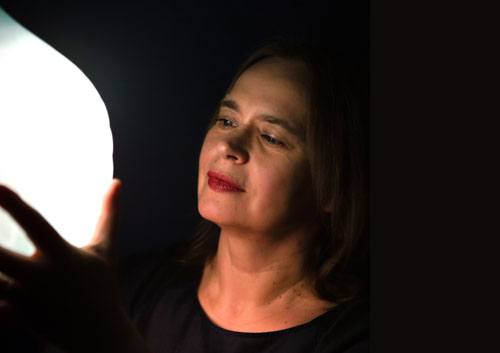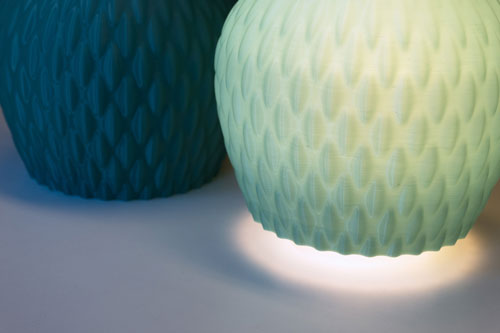Signify in 3D print collab with top designer

Signify’s 3D printing division has an announced a collaboration with the prominent textile designer Aleksandra Gaca.
The designer has created a distinctive version of the firm’s ‘Coastal Breeze’ collection of sustainable pendant luminaires which use so-called ocean plastic manufactured from waste rescued from the sea
The range was unveiled at the international design fair, Salone del Mobile, in Milan this week.
Signify said that Gaca’s innovative woven textiles ‘sit at the intersection of art, design and architecture and match perfectly with the 3D printing technology used to create Philips MyCreation lighting objects’.
“As a textile designer, I am really excited about the 3D printing techniques developed by Signify, because they allow me to quickly and easily incorporate my textures into everyday objects within anyone’s reach,’ says Aleksandra Gaca.
 The ‘Coastal Breeze’ collection of sustainable pendant luminaires uses so-called ocean plastic manufactured from plastic rescued from the sea. Up to 46 per cent of ocean plastic consists of fishing nets, lines and ropes.
The ‘Coastal Breeze’ collection of sustainable pendant luminaires uses so-called ocean plastic manufactured from plastic rescued from the sea. Up to 46 per cent of ocean plastic consists of fishing nets, lines and ropes.
Original nylon fish nets are sourced from fishermen on the UK’s Cornish coast and transformed by partner Fishy Filaments into granulate, the base material for 3D printing filament. The raw material is then processed into filament in Maarheeze, the Netherlands, and 3D printed in Turnhout, Belgium.
As well as reusing ocean plastic, 3D printing process helps reduce waste and contributes to a circular economy, says the company. Items can be printed locally on demand, so no excess stock is produced.
There is no glue, fewer screws and the items are easy to disassemble and repair.
Signify says that 3D-printed luminaires represent up to 76 per cent lower emissions from material supply and manufacturing, and up to 28 per cent savings in transport.
Earlier this year, Schneider Electric has unveiled a range of electrical accessories made from discarded fishermen’s nets.
The Merten M-Pure Ocean Plastic is made from 50% regular plastic and 50% from discarded fishermen’s nets.
• Remanufacturing Lighting is the subject of a special one-day conference organised by Recolight and taking place on Thursday 27 April 2023 at the Coin Street Conference Centre in London. This CPD-approved event will give you the tools, insights and contacts make a success of luminaire reconditioning and reuse. You’ll learn how to sell the concept of reconditioned lights, develop best practice policies, comply with the standards, set up a testing regime for reused luminaires and remanufacture fittings at scale. The gathering will also give you inspiration from real world projects which prove that remanufacturing can be a success everyone. You’ll also meet key players in the remanufacturing industry network with specifiers with the power to get your products into projects. See more HERE.


